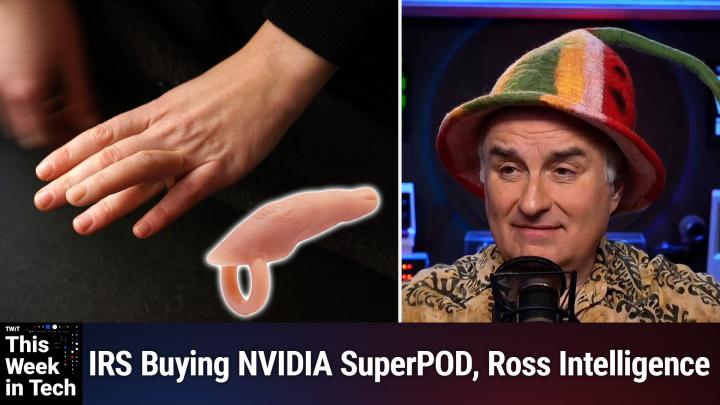Intel’s Potential Dismantling & What Went Wrong
AI created, human edited.
In a recent episode of This Week in Tech, host Leo Laporte and his panel of tech experts—Brian McCullough, Iain Thomson, and Wes Faulkner—had an in-depth conversation about what could be the beginning of the end for one of America's most iconic chip companies: Intel.
Intel's Shocking Consideration: Selling Fabs to TSMC
The discussion started with Leo sharing the startling news that Intel has been in talks with the Trump administration and Taiwan Semiconductor Manufacturing Company (TSMC) about potentially selling off its fabrication plants (fabs). This revelation comes amidst Intel's ongoing struggles—their recent quarterly results showed revenue down 7% year over year, with full-year revenue down 2%.
Brian McCullough put Intel's current situation into stark perspective with some eye-opening figures: "Intel's foundry business lost $13 billion on $17.5 billion in revenue last year, just last year, 2024. Meanwhile, TSMC had $41.1 billion in profit on $90 billion in revenue over the same period."
The Potential Deal Structure
The panel discussed how the potential breakup of Intel might work. According to reports from The Wall Street Journal, there are two main interested parties:
- TSMC - Interested in acquiring Intel's fabrication plants, which would significantly expand TSMC's manufacturing presence in the United States
- Broadcom - Looking to acquire Intel's chip design business
However, as Wes Faulkner pointed out, Intel cannot completely divest its operations due to conditions attached to funding from the CHIPS Act: "They cannot 100% divest because of the money that they got from the government."
The panelists raised significant concerns about the potential national security implications. Leo mentioned that "a White House official told Reuters on Friday that the administration might not support Intel's factories being operated by a foreign entity."
Iain Thomson echoed this sentiment: "From a national security perspective, though, you do want a chip maker who is domestically based and who is doing the best stuff. Selling it off to a foreign company doesn't seem like the best strategy."
How Did Intel Get Here?
The conversation turned reflective, with panelists analyzing the missteps that led Intel to this point. Iain Thomson remarked: "If the board had chosen Pat Gelsinger in 2005 rather than Paul Otellini, Intel would have saved itself 20 years and billions of dollars in stock buybacks, and actually invested in making TSMC a competitor, if not outclassing them."
The panel agreed that Intel missed two critical technological shifts: mobile computing and GPUs. Brian McCullough emphasized: "That's not what happens to miss two of the most historic secular shifts—mobile and the GPUs."
Iain Thomson added that Intel was "locked into the x86 platform and it infected everything else," preventing them from successfully innovating in other areas.
Leo framed Intel's predicament in terms of Clayton Christensen's famous concept: "They were kind of caught up in the Innovator's Dilemma, right? To take a, at that time, highly successful, highly profitable business and completely change it is very difficult. It's hard to convince the stakeholders."
The panel contrasted Intel's struggles with Microsoft's successful reinvention under Satya Nadella, with Iain recounting how even Microsoft nearly missed the internet revolution before Bill Gates' famous pivot.
In an interesting moment, Wes Faulkner, a former AMD employee, offered his perspective: "Usually these companies just fade away... As a person that used to work for AMD, Intel was a big bully. I believe they would not be in this mess if they didn't do the shenanigans that they pulled and really try to compete on their own merits."
The Uncertain Future
The panel ended the discussion by contemplating Intel's future. Brian McCullough suggested Intel might "survive in the same way that HP has survived, in different names and forms and pieces."
Leo wondered aloud if they would need to eulogize Intel at some point, though the panel agreed that like many tech giants before them, Intel is more likely to fade away gradually or be broken up rather than disappear entirely.
Want to hear the full discussion about Intel's potential breakup and other insightful tech news? Listen to the complete This Week in Tech episode wherever you get your podcasts or visit twit.tv.
